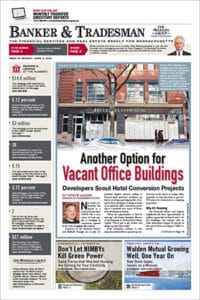
Lew Sichelman
Homeowners who sell their houses “as-is” may end up costing themselves more than they would have spent to make the necessary repairs – if they are able to sell their homes at all.
For one thing, most buyers these days don’t want to buy a house that needs work. Fixer-uppers are OK for flippers, who are increasingly putting their own money into the houses they buy, as opposed to just relying on appreciation to make a buck, according to real estate analytics firm CoreLogic.
But for the most part, families want a move-in ready place. They don’t want to mess with replacing worn carpeting, remediating a patch of mold or painting the walls.
“If you don’t want to do the work,” said Jeanne Gregory of RE/MAX Southwest in Sugarland, Texas, “what on earth makes you think your buyer does?”
Equally important: Most buyers have no idea what the necessary fixes might cost. So they tend to double or even triple what it would cost the seller to do the work, and then reduce their offer by that amount. Consequently, sellers net less – sometimes far less – than if they’d bitten the bullet in the first place.
Chris Ann Cleland of Long & Foster Real Estate in Gainesville, Virginia, calls dumping the work on your buyer a “pain in the a** tax,” and said the cost associated with doing what’s necessary “goes up in their minds and is deducted from the seller’s list price.”
And don’t even think about offering your buyer a credit to cover the cost of repairs. That usually doesn’t work, either.
Credits rely on the buyer’s imagination, said Sally and David Hanson of eXp Realty in Brookfield, Wisconsin. A credit is “an open invitation,” they added, for an uneducated guess from an uneducated buyer.
Brian England of Arizona Focus Realty in Gilbert agreed. “Credits don’t work,” he commented. “Buyers will take it and often offer less, as well, so it is a double whammy.”
The Eye Buys
All the agents hit on a common theme: The eye buys. So do what you have to do to fix up your place, even if it’s unpleasant or time-consuming. Otherwise, be prepared to wait a while for one of the few buyers willing to take on your headaches. Prepare yourself, too, to accept less than your asking price.
A while back, Mary Hutchison of Better Homes and Gardens Real Estate in Kansas City, Missouri, was working with a seller who didn’t want to repair, declutter or clean his place. After several showings and two months on the market, he finally got the message. But it was too late, she said, and he did not get the price he wanted.
“If you really want to attract serious homebuyers, keep your contract from falling through and get the best possible price, you need to swallow hard and fix the house,” advises the team of Crispin Ang, Ross Sit and Bernadette Santos at Realty One Group Alliance in the San Francisco Bay area. They know of many sellers who refused to spend $5,000 in repairs, only to sell for $15,000 less than what they wanted. “The cost of making repairs easily outweighs the price of digging in your heels,” they posted on the ActiveRain real estate site.
If you absolutely, positively can’t make the repairs – no money, no time – consider obtaining estimates in advance for all the work that need to be done. That way, you can use them to give your buyer a more reasonable idea of the cost, rather than relying on them to guess or obtain their own – often inflated – estimates.
If you are thinking about offering a credit, you can base it on your estimates, as opposed to leaving the amount up to the buyer’s imagination.
Finally, a word of caution to buyers who are thinking about buying an as-is residence: Think again.
“As-is sales are best left for flippers, who have the skill to rehab them well and put them back on the market,” said Myrl Jeffcoat of GreatWest Realty in Sacramento, California.
Texas agent Gregory agrees. “Chip and Joanna (Gaines) have deep pockets and sponsors,” she said. “Most buyers don’t.”
Young buyers who want to buy a home and put sweat equity into it “are usually really disappointed,” said Candice Donofrio of Next Wave Real Estate Investments in Bullhead City, Arizona. “Because it’s like cockroaches. Where there’s a little bit of a problem now, there’s a big problem you haven’t seen yet.”
Lew Sichelman has been covering real estate for more than 50 years. He is a regular contributor to numerous shelter magazines and housing and housing-finance industry publications. Readers can contact him at lsichelman@aol.com.





